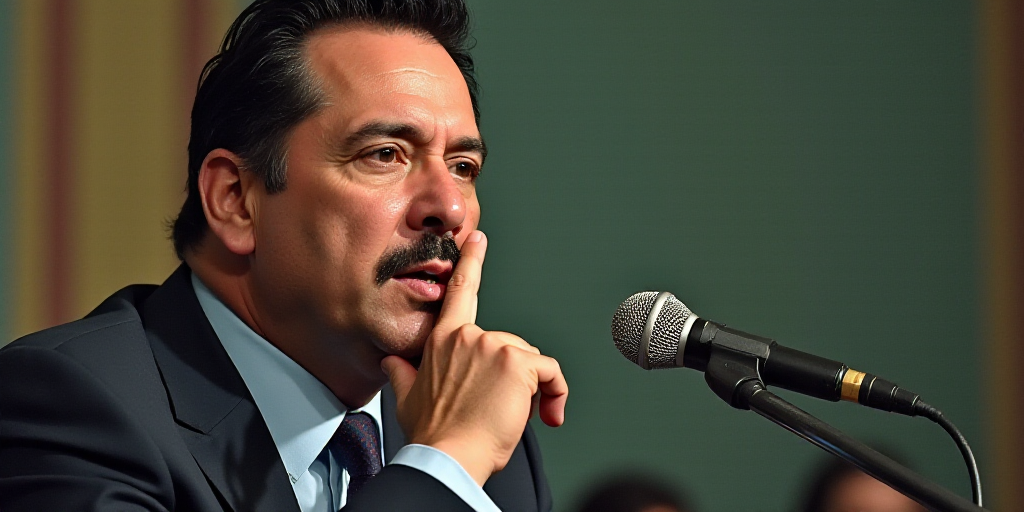Background on the Mexican Foreign Policy Expert, Jorge Schiavon
Jorge Schiavon is an esteemed academic from the Department of International Studies at the Universidad Iberoamericana. His expertise in Mexico’s international relations positions him as a key voice in evaluating the country’s foreign policy.
Key Issues Identified by Schiavon
Schiavon has pinpointed five essential elements for a robust foreign policy, which he encapsulates as the “five P’s”: public policy, presidential priority, proactiveness, budget, and professionalism. According to him, Mexico’s current foreign policy falls short in all these areas.
- Absence of a Strategic Public Policy: Schiavon asserts that Mexico lacks a well-defined, strategic public policy guiding its international engagements.
- Lack of Presidential Priority: He notes that the foreign policy is not considered a priority by the president, leading to reactive rather than proactive actions.
- Reactive Approach: The Mexican government has adopted a reactive stance instead of a proactive one, which Schiavon attributes to the international context marked by crises in multilateralism, Russia’s invasion of Ukraine, tensions in the Middle East, and the rivalry between China and the United States.
- Insufficient Resources and Staff: Schiavon highlights that Mexico’s foreign policy suffers from inadequate resources and insufficiently qualified personnel.
- Loss of Professionalism: He points out that historically, a third of Mexico’s embassies and consulates were headed by experienced political profiles. Now, nearly half of the appointments are politically driven, with some lacking necessary knowledge and capabilities.
Additional Perspectives from Gabriela de la Paz
Gabriela de la Paz, a professor of International Relations at TEC de Monterrey, echoes Schiavon’s concerns regarding Mexico’s foreign policy.
- Discrete and Unchanging Policy: De la Paz notes that Mexico maintains a discreet foreign policy with minimal changes in its interests and scant participation in international forums.
- Focus on Bilateral Relations: Tensions with Spain and the emphasis on bilateral relations overshadow Mexico’s multilateral engagements.
- Limited Resources for Consulates: She points out that insufficient resources in U.S. consulates hamper the assistance provided to Mexican nationals.
- Weak Stance on International Crises: Mexico has failed to take a firm position on international crises, such as the war in Gaza or Russia’s invasion of Ukraine.
- Need for Regional Leadership: De la Paz warns that if Mexico does not assume regional leadership, countries like Brazil or Argentina will. She stresses the importance of a visible and strategic foreign ministry effort, along with monitoring relations with global powers to balance U.S. influence.
Key Questions and Answers
- Question: What are the main concerns raised by experts regarding Mexico’s foreign policy?
- Question: How has the international context influenced Mexico’s foreign policy approach?
- Question: What are the consequences of Mexico’s limited engagement in international forums?
- Question: How do resource constraints affect Mexico’s consulates and their ability to assist nationals abroad?
Answer: Experts, including Jorge Schiavon and Gabriela de la Paz, have identified several issues with Mexico’s foreign policy. These include the absence of a strategic public policy, lack of presidential priority, reactive rather than proactive actions, insufficient resources and qualified personnel, and a loss of professionalism.
Answer: The international context, marked by crises in multilateralism, Russia’s invasion of Ukraine, tensions in the Middle East, and the rivalry between China and the United States, has led Mexico to adopt a reactive stance instead of a proactive one.
Answer: Mexico’s limited engagement in international forums, such as the G20 and G7, reflects a discreet foreign policy with minimal changes in its interests. This approach prioritizes bilateral relations over multilateral engagements, which may allow other regional powers like Brazil or Argentina to assume leadership roles.
Answer: Insufficient resources in U.S. consulates limit the assistance provided to Mexican nationals, highlighting the need for better allocation of resources to support diplomatic efforts effectively.






